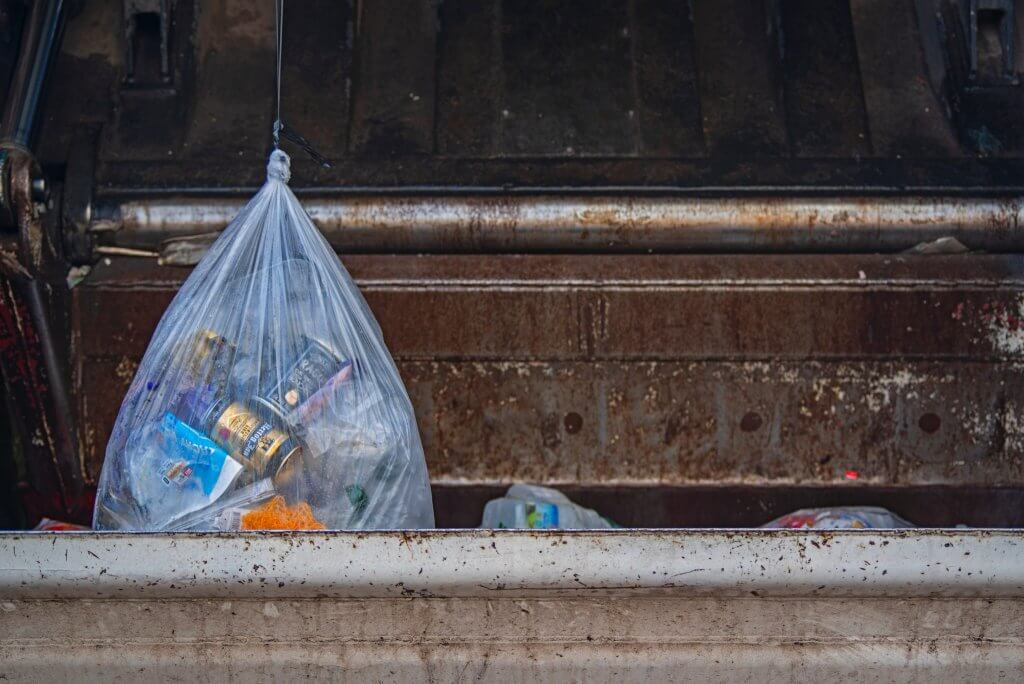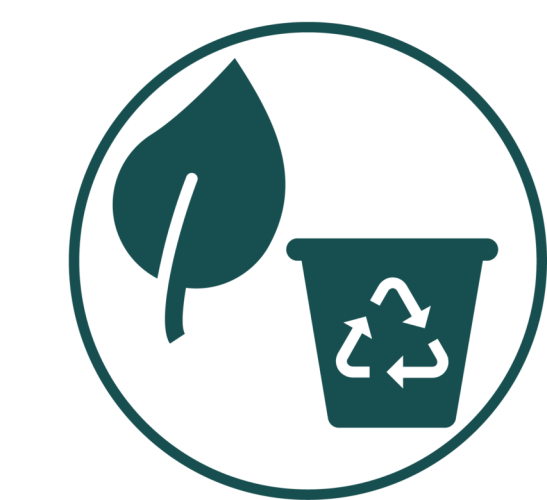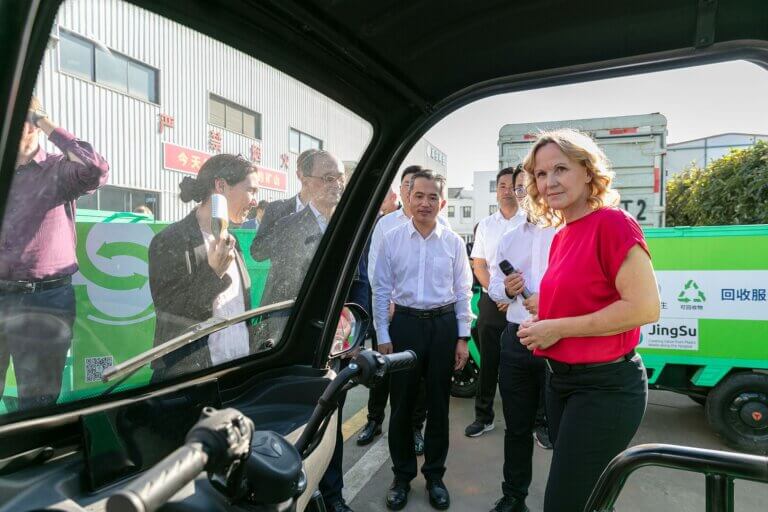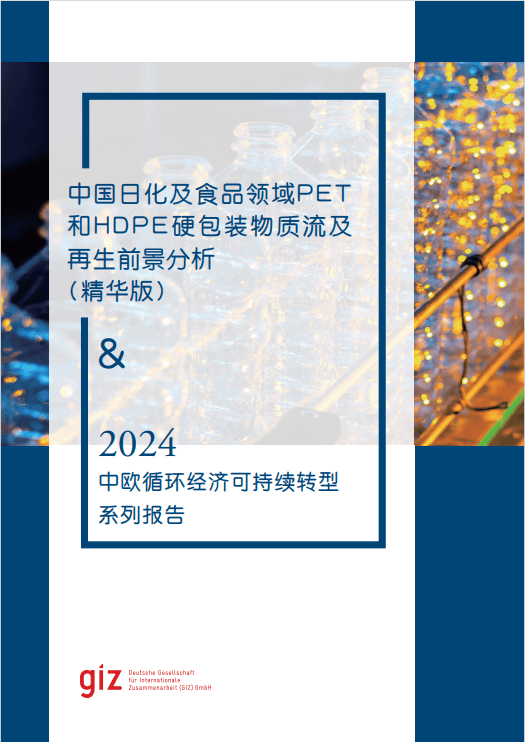* This article is shared by the “Rethinking Plastics – Circular Economy Solutions to Marine Litter” project, which is co-financed by the European Union (EU) and the German Federal Ministry for Economic Cooperation and Development (BMZ) and implemented by GIZ and Expertise France. More information: https://beatplasticpollution.eu/rethinking-plastics/
* The article´s contents are the sole responsibility of GIZ and do not necessarily reflect the views of the EU or the BMZ.

The outbreak of COVID-19 wreaked havoc on multiple sectors in China, which ultimately affected the development of a circular economy and plastic recycling industry.Online Shopping Led to Increased Use of Plastic Packaging
The pandemic has significantly changed people’s consumption behavior. The “stay-at-home economy” is booming due to social distancing. People tend to purchase fresh produce in online groceries. In February 2020, the online orders at Fresh Hema (an online grocery store) increased by 220% in comparison to the same period a year ago[1]. Then, the average number of daily online orders in a single store was 1200 (the statistic is valid for stores existing at least 1,5 years), which means that the pandemic has resulted in additional 2640 orders[2]. Even based on a modest estimate that one shop has used one plastic bag per order, in February all 153 Hema stores in China would use 11.71 million extra plastic bags. In addition, the quarantine has also reshaped purchasing behaviors of middle aged and elderly people, making them buy more online. It can be assumed that they will continue buying fresh produce and daily necessities in online groceries in the future.
The average daily order volume on Taobao (one of the biggest Chinese e-commerce platforms) also saw a significant increase: 12 million orders more in March 2020 in comparison to December last year[3]. In the meantime, environmental organizations (Break Free from Plastic China and Greenpeace) estimated in 2019 that the express delivery service in China mainly used three types of packaging: carton boxes (44.03%), containing on average 304g of corrugated paper and 20g of plastic filling and tape; cartons wrapped in plastic bags (9.47%), with 230g of corrugated paper and 40g of plastic; and plastic bags (33.5%), having 25g of plastic on average[4]. Given the increase in sales on the Taobao platform in March, it can be estimated that at least 57,895 tons of waste carton boxes and 7,800 tons of waste plastic will be generated on top of already existing volumes of packaging waste.
The coronavirus pandemic has also impacted plastic use in catering and dining industry, driving restaurants to develop food delivery due to restricted dine-in services. The Consumption Report on Food Delivery after Resumption released by Meituan (one of the largest food delivery platforms in China) shows that even after resuming work, 30% of restaurants receive more takeaway orders than in the “pre-corona” times. This is likely to result in an increase in plastic waste associated with food packaging.
Plastic Recycling System Encountered Its “Winter”
Meanwhile, the plastic recycling system has been in hibernation during the outbreak. Large numbers of waste collection workers had to stay at home, while those “on duty” could not enter communities to retrieve valuable waste from community garbage bins due to restricted entry policies. This resulted in the pile-up of plastic recyclables generated by households. Since mid-March, after the work resumption, the situation has improved, but more time is needed for the plastic recycling system to be back on track fully. With more plastic packaging waste and less front-end recycling capacity, there is a higher risk of increased volumes of plastic waste polluting the environment.
The plastic recycling industry overall has also been facing economic losses. According to the survey conducted by China Plastic Recycling Association of China Resource Recycling Association (CRRA), about a fifth (21.74%) of enterprises in the sector were severely affected by COVID-19 with an estimated revenue drop of 90% in the first quarter 2020. In the meantime, a vast majority of companies (around 70%) reported various degrees of impact brought by COVID-19: revenues of 36.96% enterprises were estimated to fall 50-90% in Q1 2020, whereas 34.78% enterprises experienced 10-50% decrease in earnings. Experts attributed economic loss to the shortage of labor force as most enterprises encountered difficulty in resuming their “business as usual”. Only less than 7% of the companies in the recycling sector stated that they were not affected by the pandemic.
The global conjuncture also does not create favorable conditions for the rapid regaining of pace by the recycling industry. As oil prices plummeted against the backdrop of an overall economic slowdown due to the pandemic, prices of virgin plastic materials went down as well, making them increasingly hard to beat by the struggling recycling industry. Recycled plastics have been therefore losing their competitiveness, which has further cut down the market demand in downstream industries.
A Global Concern
COVID-19 outbreak has also imposed significant challenges to the plastic recycling and circular economy development in Europe, including changes in consumption habits, altered waste sorting routines and recycling logistics, blocked supply chains, declined demand for recycled plastic in downstream enterprises etc. The question of how to maintain the progress made towards a circular economy, minimize economic losses in and resume stable operation of the plastic recycling industry under the challenging conditions the world is facing now, becomes one of the serious concerns of the year 2020.
References:
[1] http://www.xinhuanet.com/politics/2020-02/28/c_1125637321.htm
[2] http://headscm.com/uploads/file1/20190322/5c944440cfce4.pdf
[3] https://m.jiemian.com/article/4234939.html
[4] Greenpeace, Break Free From Plastic China: Generation and Management of Delivery Packaging Waste in China




